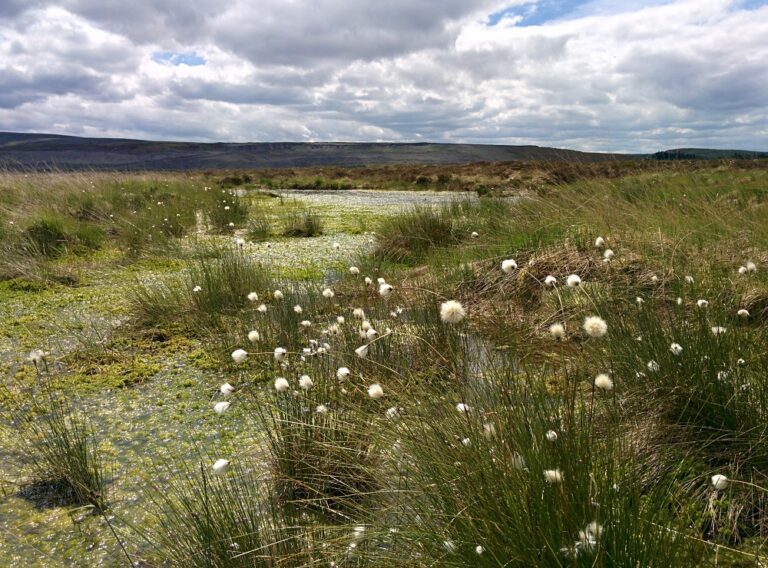By Meghan Taylor
A report, launched at the Oxford Farming Conference (OFC), has estimated that the potential market value of the UK’s natural capital and carbon could equate to £1.7 billion annually. However, farmers are being warned to focus on their own farm emission reductions, before considering trading their carbon offset pollution in other sectors.
However, during an OFC session, which discussed the report’s findings, NFU president Minette Batters focussed her attention on the effects that the emerging markets could have on farmers.
Batters said: “We have let the power creep out of our hands; we have got to have an opportunity to reset this and if we let these markets escape out of the hands of farmers, we are going to regret it for forever and a day.”
Led by the Green Alliance in partnership with Tesco, WWF, the Oxford Farming Conference, and Savills, the report, ‘Natural Capital: The Battle for Control’, recommended that the natural capital market be governed robustly, with “a desperately needed land use framework and Office for Carbon Removal,” according to Dustin Benton, the Green Alliance policy director.
Benton, during an OFC session, described four possible natural capital market scenarios, and how they might be governed. Responses to the examples came from Minette Batters and the chief executive of WWF UK, Tanya Steele.
A ‘free for all’ natural capitals market was described as comparable to the current market. With this model, decisions are driven by private corporations seeking cheap carbon offsets with limited governance. “The winners in this market are large landowners because they have the lowest transaction costs,” noted Benton.
The opposing market would be a ‘strategic planning’ system. Within this system, the government decides land use rules and payments, to deliver multiple public policy goals. Strategic planning “would absorb a lot of the transaction costs, so small farmers and soil carbon could probably play a bigger role,” said Benton, however, within this system, the government has control.
“Natural capital would still be owned by the landowners, but, in practise, the state would determine its value and where projects happen,” Benton added.
Tanya Steele spoke of a system in which farmers – ‘the modern-day heroes in the fight against climate change’ – and landowners, must be provided with fair returns for their contributions to the climate challenge. However, she also stated: “as natural capital and carbon markets start to rapidly evolve, there will be an important role for government to ensure that public and private finance are making positive contributions.”
A system which would lessen, but not eradicate, governmental control could be the ‘planning via incentives’ model, which would rely upon the government to ‘fill the gaps’ around private markets, to deliver multiple public policy goals. Nonetheless, though government influence would be reduced, Benton said: “this scenario will probably put the Treasury in control, as it is all about public spending.”
In a scenario in which carbon credits fail, and the government or private companies buy up land, the ‘nationalise or privatise’ system would flourish. Here, the government and large corporations would meet land-related goals by purchasing land and taking direct ownership of natural capital. Concerningly, Benton highlights that “land prices are beginning to rise,” which suggests that this system is already coming in to play.
With the ‘nationalise or privatise’ system, it is also important to think about the possibility that, “as basic payments are withdrawn, farmers in less profitable areas or that are on the most subsidies might find selling their land the most economically rational thing to do,” Benson added.
Batters carried the torch for farmers during the discussions, arguing that future trades in the natural capital markets must be “farmer led, and farmer owned.”
“Farmers are the only working conservationists we have, and we cannot do it any other way than through the farmer, we have to have a fair approach whereby all of these farmers can develop these new trades,” said Batters.
Her thinking on this subject was a leading concern for all three of the session’s speakers, as Benton also discussed the importance of making the natural capital markets accessible to everyone: “In all of our scenarios we see tenant [farmers] missing out, natural capital is often inaccessible to tenants, but if we want to make the most of natural capital, we need to draw on the skill of all farmers, including tenants.”
Steele also commented on how the government’s net zero plan for agriculture had left farmers in the dark: “The net zero strategy unquestionably has too little detail for land-based businesses, and we don’t have a dedicated decarbonisation plan for agriculture and land use, that is a glaring oversight as policies such as ELM are rolled out.”


